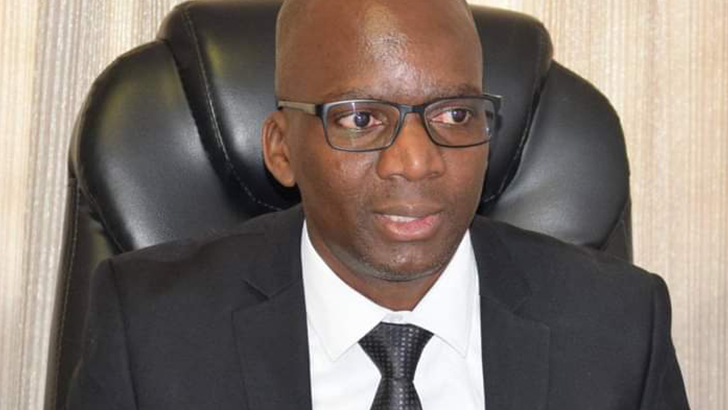– Fails to enforce law
– Chinese firm project suspended for compliance failure
BY GREGORY GONDWE
On paper, local firms are hugely benefitting from public construction contracts yet on the ground, foreign firms are getting almost everything, and blatantly defying the national law that requires them to go into partnership with local construction companies – a development that not only questions how this requirement of the law is largely ignored, but also putting local firms to their death beds.
A PIJ investigation has established that in cases – where partnerships exist between foreign and local firms – such arrangements are cosmetic and exploitative – a number of local firms that we have spoken to have complained – calling on National Construction Industry Council (NCIC) to begin to enforce the law.
The National Construction Industry Council Act Order of 2014 requires that any foreign firm wishing to provide construction services in Malawi “shall be required to provide those services in association with a member practice”.
The order (section 6) further stipulates: “A member practice, whether in a joint venture or a subcontract arrangement shall be responsible for a minimum of 30 percent of the works by volume and value”.
A random check with some local construction companies shows that the requirement of the law is largely ignored as some foreign firms have gone on to carry such works without partnerships – raising questions on the seriousness of NCIC.
“Most of the time the so-called sub-contract is done just for purposes of fulfilling the law. Out of a contract value of over K10 billion we were only given work for about K23 million even when we had the capacity to do more” said one of the local contractors who did not want to name the firm and his name for fear of jeopardizing his future business partnership.
Another added: “What is better to insist on the 30 percent and lose out the business completely or get something to have your business running? We opt for something even when we know we deserve better. These foreign firms have too much power, if you do not agree they will seek someone’s services”.
Fear seems to be prevalent among local firms – as those we spoke to literally refused to be named to protect their business interest.
A 2015 NCIC report states that despite the heavy presence of local firms, participation in the construction industry in Malawi is dominated by foreign firms which constitute only 2.8 percent of registered firms taking 85 percent of the construction business by value with local firms scrambling for the remaining 15 percent.
FISD BREAKS SILENCE
NCIC, last week, issued an order stopping China State Construction Engineering Corporation Ltd from constructing Mzuzu University library and auditorium after the Chinese-owned firm failed to comply with the order that require sub-contracting of locals.
But the NCIC order was a reaction to a High Court ruling that had found the Chinese company in the wrong for duping a local partner – FISD Limited Company.
The two firms, according to an agreement in our possession, settled that the Chinese company would—between September 11, 2020, and June 2021—subcontract FISD work equivalent to no less than three percent of main contract value.
But this was ignored as the Chinese firm went on to undertake work for two projects; Mzuzu University Library construction and another Northern Water Board Project in Karonga without involving FISD.
Unlike other firms suffering in silence, FISD went to court to challenge the decision of the Chinese partner which was found in the wrong and fined to pay $2 million for two projects (about K1.8 billion).

In his ruling, High Court Judge Ken Manda observed that the Chinese company brought FISD Company Limited on board as a figurehead and solely for the purpose of winning government contracts in the country.
“Rather, what seems to come out from the facts before me is that the defendant brought the claimant on board as a figurehead and solely for the purpose of winning government contracts in this country” reads part of Justice’s Manda’s judgment dated September 15, 2021.
We understand that FISD did not register a complaint to NCIC for lack of trust in the institution which a number of local contractors we have spoken to say is “toothless” to bite powerful foreign firms.
FISD lawyer Gift Nankhuni did not state the reasons they could not lodge a complaint with NCIC stressing that they are happy with both the court judgment and the NCIC order.
Nankhuni added that they will push for de-registration of China State Construction Company for violating the law.

While the acting Chief Executive Officer for NCIC Gerald Khonje could not respond to our question on whether their action was influenced by the court decision – a board member confided in us that the court decision is what led to their order.
“Mind you these are Chinese-owned firms and any decision you make on them has some political and diplomatic connotations. This is why we have been reluctant to act. We took advantage of the court order in this case and I think – with people raising issues the way FISD has done, things may change otherwise it is our wish that Malawian benefit from these public contracts” said the board member. The board member said there are several major construction projects which have taken place from the previous administration to the current one where the subcontracting order has been violated and NCIC is currently looking at those including the construction of a six-lane-road project – a contract given to China Civils by the Chakwera administration.
RA, DONORS ‘IGNORE’ ORDER?
The Roads Authority has huge share of projects in the construction industry – and therefore it is expected to play a role in ensuring that the sub-contracting rule is adhered to. In the current national budget, RA has been allocated K70 billion for nine flagship road projects.
The Authority has not been forth-coming to comment on this issue but we have been able to talk to one senior official who spoke on strict condition of anonymity.
“We really do not care whether the foreign firm pairs with a local one or not or who gets the business – our focus is on value for money. We will go for someone with capacity and who can deliver the work within our agreed period regardless of who they partner with.
We have nine flagship projects – we will be judged by how much we cover within the given period and not how many foreign firms have been able to comply with the NCIC order – I guess that is for NCIC to worry about. What matters to us is value for money.” said the official who also blamed the design of the country’s procurement regulations – that prioritise black indigenous Malawians.
“These are retrogressive policies. Why a black indigenous Malawian? Is this about skin colour? So, what happens to Malawians with light skin? So, we need to rethink these policies and we must be practical. Contracting foreign firms is much better for they have the capacity to deliver because of their financial muscle. Issues of partnerships must just be encouraged and not forced them” added the official.
The official from RA further added that sometimes – subcontracting fails because some donor-driven projects have their own conditions.
“For some donor projects subcontracting does not really matter. It may happen but not in full compliance with the law and we really do not have a choice because they are the funders and usually, they prefer foreign firms because they are efficient. We have no choice but to go by this”
But acting CEO for NCIC said the 2014 order is the law and it is expected of all players in the industry to abide by it including donors. He said they will, nevertheless, continue to engage all stakeholders to ensure that this law is adhered to.
TONSE ADMINSTRATION’S EFFORTS
The NCIC order of 2014 was enacted to empower local businesses – to benefit from these contracts and also build their capacities.
The Tonse Administration wants to actualize provisions of the public procurement and disposal of assets act which requires that indigenous Malawians are given a priority in all public procurement.
Section 44 (10) of the public procurement law (2017) state that “a procuring entity shall ensure prioritisation of all bids submitted to give preference to 60 percent indigenous black Malawians and 40 percent others for national competitive bidding”.
In a circular dated July 1, 2020 (Ref. No. PPDA/01/22), just less than a week after a new administration came in, the Public Procurement and Disposal of Assets Authority (PPDA) issued a circular – asking procuring entities to live by the spirit of the law to ensure that in all national competitive bidding – indigenous black Malawians are being given 60 percent opportunity.
The circular further demanded that where they cannot give priority to indigenous Malawians, they must justify their decision to the authority.

In March this year, President Lazarus Chakwera directed ministries, departments, and agencies (MDAs) to prioritise local goods and services in their procurement and to buy from local small and medium enterprises (SMEs).
In his address Chakwera strongly spoke against “monopolistic business tendency” where a few individuals and companies make multiple applications for a single government contract, stressing that his administration will stop it.
Chakwera said the time has come to break what he called the “stupid monopoly “and replace it with government policies, legislation, and practice that promote inclusive economic growth.
In a circular (Ref. NO: SPC/5/001), dated August 17, 2020, the Secretary to President and Cabinet Zanga-zanga Chikhosi reminded MDAs to adhere to the presidential order and further appealed to MDAs to ensure that the NCIC order of 2014 is strictly followed.

But Vice Chairperson for Malawian Building Contractors and Allied Trade Associations (MABUCATA) Kondwani Kadango said intention of the law is good but the practice shows that foreign firms are not adhering to these provisions.
Kadango said there is an influx of Chinese government-owned construction companies in the country who all bid for the same work. He said it will be interesting to see how government implements the presidential directive to break such monopoly. Kadango also complained of what he called monopoly of projects by foreign firms that have also registered locally at the expense of local firms.
“Mota-Engil is treated as local and this is why they have a monopoly over public projects. You cannot compete with them because they have access to resources being an international firm. But is this really a local firm? This is where the law needs to be clear otherwise, we will have more international companies registering in Malawi and monopolise business at the expense of the real local firms” argued Kadango.

.jpg)


.jpg)




